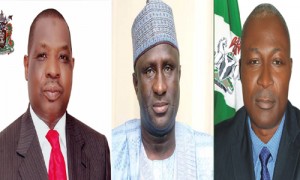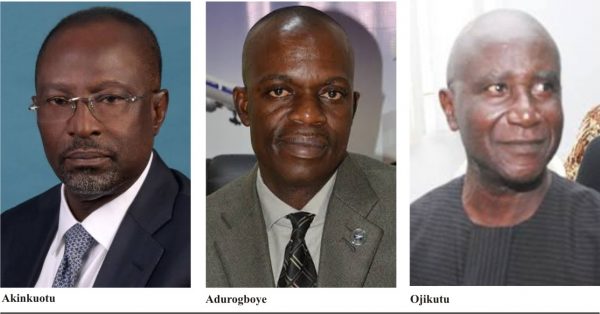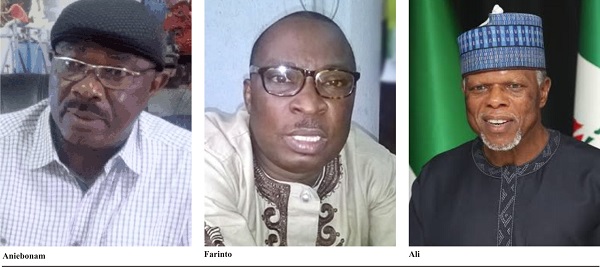Eight Years Of Port Concessioning: How Fair?

About eight years ago, the Federal Government of Nigeria concenssioned the ports in Nigeria to private operators. The concession agreement was greeted with high hopes and expectations from stakeholders and Nigerians alike believing that the many problems besieging the ports would be things of the past.
Then in the ports, there were a lot of bottlenecks and bureaucracy that affected the smooth running of the operations in the port. Cargo dwell time was about 40 days or more, vessel dwell time too was more than 28 days. There were incidences of Wharf rats all over the ports. The ports were characterized with infrastructural deficit with minimal private sector participation and dominant public monopoly in design, development, maintenance and operations. The port system up to the eve of the reform process was an impediment to efficient transfer of cargo and facilitation of trade. Even the Nigeria Ports Authority (NPA) governance framework was characterized by unusual degree of centralization, limited economy, government interference, burdensome bureaucratic structure, excess labour force, conflicting role as a regulator and an operator at the same time and so many others.
The attendant result of these anomalies were inefficiency in ports operation resulting in high cost of processing imported goods and the inability of Nigeria’s export to compete in the international market. The ports were inefficient and unattractive to shippers and were characterized by long turnaround time for cargo and ships, insecurity of cargo, low productive force in NPA, multiple and excessive charges etc.
This is why the World Bank and PPIAF in a 2007 publication noted that “In the 1990’s, Nigerian ports faced numerous logistical, financial and administrative challenges. Turnaround and dwelling times were exceedingly long, sometimes lasting more than 30 days, when compared with standard 48-hour turnaround times found in other world class ports. Equipment was old and dilapidated and fraud and theft of goods and materials were common. Ports infrastructure had fallen into disrepair; security was a major concern, while workforce productivity was nowhere near world class”.
The above were the state of the Nigerian Ports prior to concession. It was as a result of these anomalies in the port that the Federal Government decided to reform it for efficiency through concessioning. Since it was the era of privatization, they reckoned that privatizing the port would go a long way in reducing the challenges. The question now is, after eight years, were the concessioning reforms able to turn around the fortunes of the ports? Were they able to chart a better viable course for the ports?
What about the anomalies that hampered effective trade facilitation, were they reduced or removed entirely? Exactly how had the concession reforms faired after eight years?
Recall the Federal Government’s reform policy was targeted at attracting private sector finance and expertise to our ports through the Landlord Port Ownership and Management model, increasing efficiency of the ports operations, reducing cost of services to port users, promoting competition in provision of services and making Nigerian Ports the hub for international shipping, trans-shipment and trade facilitation in the West and Central Africa sub-region. Have all these objectives been achieved?
When asked about his assessment of the port concessioning after eight years, the Executive Secretary and Chief Executive Officer of the Nigerian Shippers’ Council (NSC) Barr. Hassan Bello said that “the concession has had tremendous improvement in the port system. The indicators are there for everybody to see. Turnaround time for ships have improved. We have throughput and more tonnage, which means that Nigeria Ports are efficient. We are gradually gaining our competitive advantage because we must not forget that we are competing with other ports”.
According to him, the ports are now competitive than before. Cargo throughput had increased tremendously, and that had a positive impact on the economy of the country. He however said that more work was needed to steer the ports to the desired destination the concession agreement was formed to attain.
“We want to see a port that is friendly, a port that makes doing business in the country competitive. We want to see a port where there is minimal human contact, a port that is technology driven. We want to see automation, efficiency and a port that is the preferred destination for shippers internationally”.
He continued “we have limitations and challenges. These were there before. You must have heard how the ports were before concenssioning and how they are now. Tremendous and significant progress has been made. It is revolutionary, we still want to enhance competitiveness, so that we will have competitive edge over our competitors. NSC is putting things together to make sure that the ports are competitive. Nigeria terminals must be competitive which means efficiency, cost reduction, less hassle and friendly ports”.
The Director General, Infrastructure Concession Regulatory Commission (ICRC) Barr. Aminu Diko said that “amidst the remarkable achievements recorded by concessioning, there are still challenges both general and specific to the terminals which limit the attainment of optimal benefits of the entire port reform exercise. Some of these are actually expectations from the parties involved in the concessioning, they include more improvement in berth repairs /maintenance and dredging of port access channels by the NPA, improvement of port access roads and inter modal transport system, greater synergy of public sector agencies at the ports for optimal performance, improvement in power supply to the terminals to reduce cost of operations, enhanced security at the water fronts to check piracy and other criminal offences, equitable cost reflective tariff for all stakeholders, effective capacity building for all NPA monitoring teams , improved legal frame work”.
He added “significant improvements have been recorded in the port terminal as a result of the reform exercise. While Concessionairess must focus seriously on meeting the agreed development plans and adhering to the terms and conditions of their agreements, the NPA is also enjoined to continue to meet its covenant under the agreement, which would assure the concessionaires a fair platform to recoup their investment”.
He continued however, that” for full realization of the objectives of the reform programme, parties to the concession agreements and all the relevant agencies of government must continue to work harmoniously to ensure the nation takes its rightful place as the hub for international trade in the west and central African sub-region”.
For Benjamin Dikki, the Director General of Bureau of Public Enterprise (BPE) “Nigeria’s privatization programme rightly focuses on the big picture, that is the whole country and ultimately in doing the greatest good for the greatest number of Nigerians. Opening up hitherto government dominated sectors to the private sector and simultaneously divesting government interests in those sectors to pave the way for innovative, hardworking entrepreneurs to grow in the economy. This will nurture strong private sector foundation that we need in a bid to increase overall efficiency and raise standards of living of Nigerians”.
He added that there was no human endeavor that was perfect, so he called for constant monitoring and reviews to fine-tune and kept pace with the exigencies of the times.
So, eight years after concessioning, how do the ports look like? Have all the problems that besieged it before concession been eradicated? How have the reforms faired? What improvements have been made? Which challenges have been surmounted and which have refused to go? We urge you to search for the answers to the questions. Discern for yourself if the reforms have succeeded so far.







